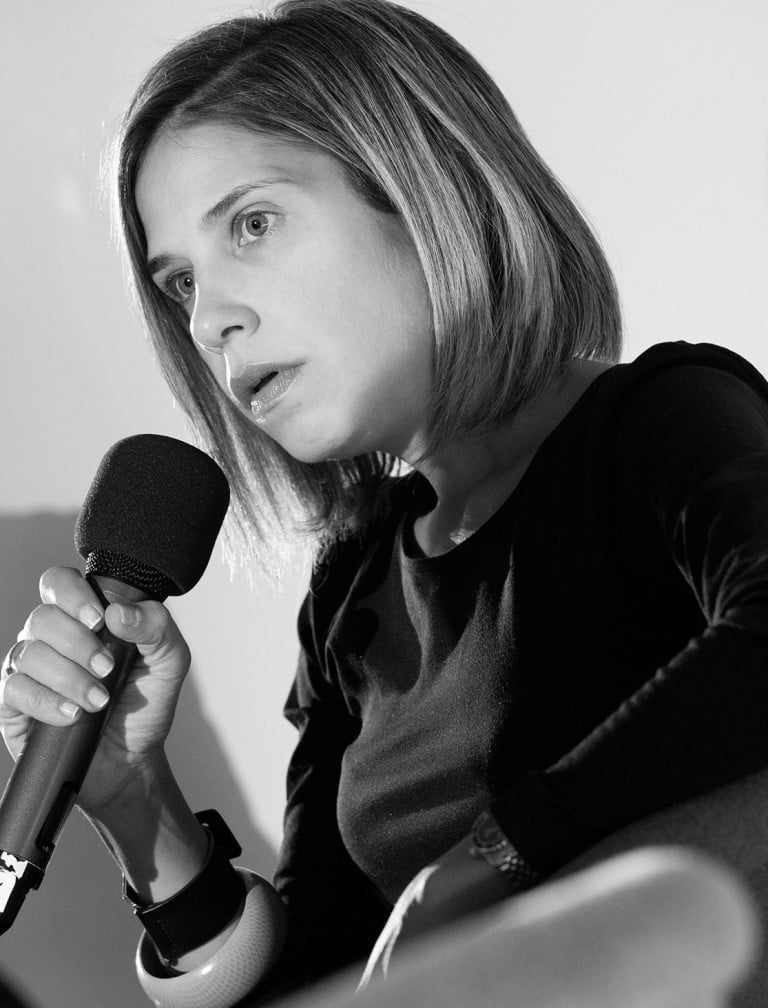
Karina Sainz Borgo
- Spain, Venezuela
- Zu Gast beim ilb: 2019
Karina Sainz Borgo was born in Caracas in 1982. She studied social sciences at the Universidad Católica Andrés Bello, emigrated to Spain in 2006, earned her master’s degree in communication and art at the Universidad Complutense in 2007, and studied journalism at the Universidad CEU San Pablo in Madrid until 2009. After working for the Spanish newspaper »El Mundo« for some time, she moved to »El Papel Literario«, the literary supplement of the Venezuelan newspaper »El Nacional«. Beginning in 2011, she was also a cultural journalist for »Vozpópuli.com«, a digital newspaper that emerged during the Spanish economic crisis and still serves as a reference for financial information. She also works for »Zenda Libros«, a literary and journalistic project launched in 2017 by Arturo Pérez-Reverte.
In 2007, she published »Tráfico y Guaire, el país y sus intelectuales« (tr: The Trade and the Guaire, the Country and its Intellectuals), a volume of four reports on the situation of intellectuals and artists in Venezuela after 1982. In the same year, »Caracas Hip Hop«, an study of an important form of artistic and social expression of Venezuelan youth, also appeared. Her many years of examining the situation in her home country eventually also flowed into the novel with which she made her debut in 2019. In »La hija de la española« (tr: The Spanish Woman’s Daughter) Sainz Borgo traces the history of Venezuela and its society. After the death of her mother, 38-year-old Adelaida Falcón lives, isolated, in Caracas, where everyday life is marked by violence and struggle for existence. Every night she glues the windows so that the tear gas used against the demonstrators in the streets does not penetrate her apartment. Finally, plunderers disguised as revolutionaries break into her apartment and Adelaida knocks on the door of her neighbors to no answer: Aurora Peralta, who everyone calls the »Spaniard’s daughter«, has died. Adelaida finds a letter with a notification that she has received a Spanish passport. So she »only« needs to remove the body lying on the floor and assume its identity in order to find a way out of hell. The media response to her début novel in Spain was enormous and the rights were sold in more than twenty countries.
Sainz Borgo’s literary role models include Gustave Flaubert, John Fante, Vladimir Nabokov, Elisa Lerner, Miya Vestrini, Natalia Ginzburg, Thomas Bernhard, Philip Roth, and J. M. Coetzee. Her writing was especially influenced by Jaime Gil de Biedma, as well as by the Spanish chronicler of the 19th century, Mariano José Larra. Karina Sainz Borgo lives in Madrid.
Tráfico y Guaire, el país y sus intelectuales
Fundación para la Cultura Urbana
Los Palos Grandes, 2007
Caracas Hip Hop
Fundación Chacao
Caracas, 2007
Nacht in Caracas
Fischer
Frankfurt a. M., 2019
[Ü: N. N.]
